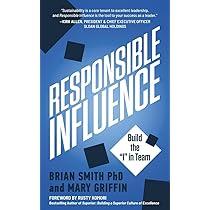
In the vibrant landscape of digital marketing, YouTube influencers have emerged as powerful players, shaping trends and consumer behaviors with a mere flick of their cameras. Yet, as their reach expands, so too does the complexity of navigating the legal and ethical frameworks that govern their increasingly influential roles. In a world where a charismatic personality can spark viral movements and drive sales, questions about transparency, authenticity, and duty loom large. How do influencers balance their responsibility to their audiences with the demands of brand partnerships? This article delves into the intricate interplay between law, ethics, and the dynamic realm of YouTube marketing, exploring the challenges and expectations facing those who wield the power of persuasion in the digital age. Join us on a journey to understand the pivotal role of ethical considerations in the evolving narrative of influencer marketing,as we examine the standards that guide this brave new world of interaction and commerce.
Understanding Legal Obligations for youtube Influencers
YouTube influencers operate in a dynamic environment that is inextricably linked to legal standards and ethical norms. As creators of content, they bear a responsibility to be informed about the various regulations that govern their work. This includes understanding disclosure requirements for sponsored content, which mandate that they clearly identify when a video features paid promotions or endorsements. Not doing so can lead not only to damage to their reputation but also legal consequences.To ensure compliance, influencers should familiarize themselves with guidelines from authorities such as the Federal Trade Commission (FTC) in the united States, which provides clear directives on how to engage with audiences transparently.
Moreover, the intricacies of copyright law are crucial for influencers who often rely on third-party content, be it music, images, or video clips. Utilizing copyrighted material without permission can result in hefty fines and potential removal from platforms. To help influencers navigate these waters, here are some vital points to consider:
- Understand your rights: Know what content you own and what requires licensing.
- Use royalty-free resources: Many platforms offer content that is free to use without worry.
- Consistency is key: Regularly review and stay updated on changes in copyright laws.

Ethical Marketing Practices in the Digital Age
As the digital landscape evolves, so too does the responsibility of brands and influencers to navigate the delicate balance between promotion and transparency. Ethical marketing is not merely about obeying the law; it involves fostering trust and credibility with audiences. For YouTube influencers,this means going beyond mere disclosures. It requires a commitment to authenticity, ensuring that the products or services they endorse genuinely resonate with their audience. Key elements include:
- Honest Representation: Clearly stating affiliations and ensuring that reviews reflect personal experiences.
- Transparency: Using clear and understandable language when marking content as sponsored.
- Consumer Respect: Prioritizing audience welfare by promoting products that align with their needs and values.
Furthermore, brands must ensure that their partnerships with influencers are cultivated ethically. This encompasses creating agreements that respect the influencer’s creative expression while together safeguarding the brand’s integrity. To illustrate the potential pitfalls and best practices, consider the following:
| Scenario | Ethical outcome | Unethical Outcome |
|---|---|---|
| Influencer receives compensation but discloses it. | Trust is maintained with the audience. | Audience feels misled due to lack of disclosure. |
| Brand encourages genuine opinions in reviews. | Fosters authentic engagement and feedback. | Influencer’s feedback is sugar-coated due to pressure. |

The Importance of Transparency and Disclosure
The realm of social media advertising is evolving rapidly, yet the principle of honesty remains a cornerstone of ethical marketing practices. amidst the allure of online influence, bold claims and manipulative tactics may seem tempting; however, transparency is not merely a regulatory requirement but fundamental to maintaining trust with audiences. When influencers openly disclose their partnerships with brands, it signifies respect towards their followers and an acknowledgment of the power they wield. Consequently,this fosters loyalty and enhances the influencer’s credibility,creating a virtuous cycle that benefits both parties involved in the promotion.
Moreover, clear communication about sponsored content can lead to better audience engagement. When users are aware of the commercial nature of promotions, they are more likely to appreciate the content creator’s efforts while making informed decisions as consumers. To illustrate this point, consider the following aspects that underscore the significance of disclosure:
- Trust Building: Honest interactions cultivate loyalty.
- Endorsement Authenticity: Genuine recommendations resonate more.
- Ethical Clarity: Sets industry standards and promotes fair practices.

Building Trust with Audiences Through Responsible Influence
In the rapidly evolving world of digital marketing, influencers wield notable power in shaping audience perceptions. to cement this influence, it is essential for creators to recognize the weight of their words and the responsibility that comes with their platform. By being obvious about sponsored content and adhering to guidelines set forth by regulatory bodies such as the FTC, influencers can cultivate a loyal and trusting relationship with their followers. Key practices for fostering trust include:
- Clear Disclosures: Always indicate when content is sponsored.
- Authenticity: Promote products that genuinely align with personal values and interests.
- Engagement: Encourage open dialog with audiences to understand their perspectives and concerns.
additionally, it is vital for influencers to stay educated about marketing ethics and continuously align their practices with evolving standards. By prioritizing ethical marketing, influencers not only protect their reputation but also support a healthier ecosystem within the influencer space. An ethical approach can lead to long-term success through brand collaborations based on trust and integrity. A straightforward framework for responsible influence can be outlined as follows:
| Principle | Description |
|---|---|
| Transparency | Clearly communicate sponsorships and endorsements. |
| Integrity | Only endorse products that are genuinely valued. |
| Responsibility | Understand the impact of content and its potential consequences. |
In Conclusion
As we conclude our exploration of the intersection between YouTube influencers and marketing ethics,it becomes clear that this dynamic landscape is as intricate as it is influential. The rise of digital content creators has transformed not just how brands engage with their audiences, but also the ethical considerations that accompany these interactions. Navigating the law in this environment requires not only a thorough understanding of legal standards but also a commitment to transparency and authenticity.As influencers continue to shape consumer behaviour, both they and the brands they collaborate with must remain vigilant stewards of ethical marketing practices. This responsibility extends beyond compliance; it calls for a proactive stance in building trust and fostering genuine connections with audiences. In this brave new world of digital influence,the choices made today will not only define reputations but will also ripple through the fabric of marketing ethics for years to come. The journey ahead is ripe with chance—let us embrace it thoughtfully and ethically.